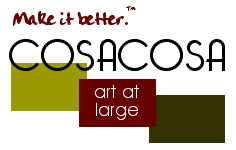



“The right word, in the right ear, at the right time, can change the world.”
-Edgar Joseph Shockley Jr., the essayist’s father
-Edgar Joseph Shockley Jr., the essayist’s father
I learned nommo, the magic of words, growing up in Philadelphia among family and friends who had migrated from the South. Stories were everywhere. The Jack O’Lantern misled wayward travelers into the Yorktown swamps. The first Negro trolley drivers had to ride accompanied by armed National Guardsmen or risk being pulled from their seats. “You keep twisting your face up like that, and the wind is gonna change it; then you gonna be stuck like that forever.”
Tales of transformation were whispered, shouted and sung incessantly. These narratives weren’t the famous stories in my textbooks or from Sunday school class. They were far more compelling. They were irrefutable sagas told in first person by people whose raw truthfulness was undeniable.
My father shared the tale of a fateful day in solitary confinement. He had grown up in poverty beyond my imagining -- from migrant farming to warring with zip guns and rubber hoses stuffed with sand, and then finally to robbing drugstores. He was a powerful man, the gang leader, and in prison ran a protections racket. If you couldn’t fight, then pay Eddie in cigarettes, and he’d keep you alive.
The problem was, as the story goes, there was the “dead time.” When a prisoner was in solitary confinement, those long days were not commuted from his sentence. A disagreeable fellow could enter prison for a year, yet emerge as a geriatric patient. My father was on this path. One day, after serving nearly five years for a two-year sentence, the small aperture on the solitary cellblock door opened. A voice said simply, “Young man, if you don’t change your ways you will be in here for the rest of your life.”
It was the right word. It was the right day. It was the right weary ear. My father became a model inmate before emerging from prison to integrate the plumbing unions in New Jersey and Massachusetts. He sponsored hundreds of others to take the various trade union tests and diversify the construction industry.
This is art: the word, the story, the creative action. Art is a mirror held up to life, and in that reflection, we meet ourselves. Today, the transformative power of the word is extended through accessible new media technologies. COSACOSA’s Visions of Community film project and Voices of Community audio CD demonstrate the power of digital storytelling. The combined work of individual speakers and singers, writing and recording both together and independently from each other, generates a collective palette of anguish and hope. The subtext is simple: the impact of attitude upon success.
Tales of transformation were whispered, shouted and sung incessantly. These narratives weren’t the famous stories in my textbooks or from Sunday school class. They were far more compelling. They were irrefutable sagas told in first person by people whose raw truthfulness was undeniable.
My father shared the tale of a fateful day in solitary confinement. He had grown up in poverty beyond my imagining -- from migrant farming to warring with zip guns and rubber hoses stuffed with sand, and then finally to robbing drugstores. He was a powerful man, the gang leader, and in prison ran a protections racket. If you couldn’t fight, then pay Eddie in cigarettes, and he’d keep you alive.
The problem was, as the story goes, there was the “dead time.” When a prisoner was in solitary confinement, those long days were not commuted from his sentence. A disagreeable fellow could enter prison for a year, yet emerge as a geriatric patient. My father was on this path. One day, after serving nearly five years for a two-year sentence, the small aperture on the solitary cellblock door opened. A voice said simply, “Young man, if you don’t change your ways you will be in here for the rest of your life.”
It was the right word. It was the right day. It was the right weary ear. My father became a model inmate before emerging from prison to integrate the plumbing unions in New Jersey and Massachusetts. He sponsored hundreds of others to take the various trade union tests and diversify the construction industry.
This is art: the word, the story, the creative action. Art is a mirror held up to life, and in that reflection, we meet ourselves. Today, the transformative power of the word is extended through accessible new media technologies. COSACOSA’s Visions of Community film project and Voices of Community audio CD demonstrate the power of digital storytelling. The combined work of individual speakers and singers, writing and recording both together and independently from each other, generates a collective palette of anguish and hope. The subtext is simple: the impact of attitude upon success.
"Belief creates reality.”
-Voices of Community
-Voices of Community
The poems, songs, skits, speeches and interviews immortalized in COSACOSA’s two Site and Sound media projects all scream the same message of possibility. Nicetown-Tioga residents, whether revealing the vibrant industrial community that once thrived here or a vacant lot juxtaposed against an urban garden, challenge us each to ask, “What life will I build for myself?” This question can transform a victim into a hero overcoming obstacles to achieve greatness.
“Determination is the key.”
-Voices of Community
-Voices of Community
"Out of life, you get what you expect.”
-Visions of Community
Ed Shockley is the multiple award-winning author of NOTES FROM A PRACTICING WRITER (Hopewell Publications)
and nearly one hundred plays. He is a resident of Philadelphia’s Nicetown-Tioga neighborhood.
-Visions of Community
Ed Shockley is the multiple award-winning author of NOTES FROM A PRACTICING WRITER (Hopewell Publications)
and nearly one hundred plays. He is a resident of Philadelphia’s Nicetown-Tioga neighborhood.
Artolatry bread image after Salvadore Dalí's Basket of Bread (1926).